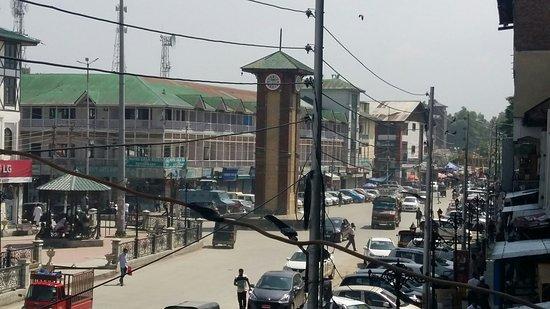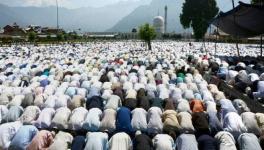Govt Bans Slaughter of Bovines, Camels in J&K Ahead of Eid-ul-Azha

Representational image.
Srinagar: Authorities in the Union Territory of Jammu and Kashmir have ordered a fresh implementation of ban on slaughter of cows, calves, camels and other animals ahead of the Eid-ul-Azha celebrations.
The Director Planning of the J&K Animal and Sheep Husbandry and Fisheries Department sent a communication to Divisional Commissioners and Inspector General of Police (IGPs) of Jammu and Kashmir to implement the animal welfare laws which includes Prevention of Cruelty to Animals Act, 1960, Transport of Animal Welfare Rules, 1978, municipal laws, and Food Safety and Standards Authority of India directions for slaughtering of animals – under which camels cannot be sacrificed during the festival.
“I am directed to request you to take all preventive measures as per the provisions of acts and rules above for implementation of the animal welfare laws, to stop illegal killing of animals and to take stringent action against the offenders violating animal welfare laws,” Director Planning G L Sharma said in the order dated July 15.
Eid-ul-Azha, one of the key holidays celebrated globally in the Muslim world, will be observed in the region on July 21-22. Muslims carry out one of the basic tenets of Islamic faith on this day which involves sacrificing of sheep, cows, buffaloes and camels – an Abrahamic tradition - which is then distributed among families, friends and neighbours.
While in urban Srinagar people mostly sacrifice sheep, in rural Kashmir, which has a majority population, people sacrifice bovine and consume beef in a significant quantity.
This tradition has existed in the Muslim majority region despite a 100-year-old law under the Ranbir Penal Code (RPC) on beef consumption that governed the region before the abrogation of Article 370. According to the Section 298-A of RPC, voluntarily slaughtering of any bovine animal was a punishable offence that could lead to imprisonment upto 10 years. That law ended with the August 5, 2019 move.
The decision has come as a dampener for many in the Kashmir Valley where the buying of sacrificial animals has already begun ahead of the grand Eid festival.
“Seems like this government is introducing everything that we fear and they are banning everything we revere. We expect the government’s decisions to be for the people and not against them,” a meat seller Hashim Ahmad told NewsClick.
Also read: How Assam is Turning Beef into a Federal Issue
Mufti e Azam Jammu and Kashmir, Nasir ul Islam, said the decision will create a “mistrust” amongst the people at a time when there is a need for peace and prosperity.
“People have been following these traditions for centuries and they are unlikely to stop such practices with such a move. But, when such traditions hurt sentiments there is a need for people from politics, civil society and religious group to sit together so that a consensus is build amongst communities,” the grand mufti told NewsClick.
Mufti Nasir believes that the move will send a “wrong message” to the people.
Beef consumption in Kashmir has been a controversial issue for years and has led to protests across the region. After remaining under a blanket ban during the erstwhile Dogra regime till 1947, the issue was raked up in 1985 as the then governor Jagmohan imposed the ban amid raging political tempest ahead of the prominent 1987 elections. Socio-political leader from South Kashmir Qazi Nisar slaughtered a bovine and a sheep at Anantnag in defiance of the order.
The issue again gained prominence as the People’s Democratic Party-Bharatiya Janata Party coalition government ruled the erstwhile state in year 2015. Fresh in state Assembly, the two parties battled over the Dogra-era law that became one of the reasons for fast decomposition of the political alliance and ultimately the ruin of the entire political-scape.
Get the latest reports & analysis with people's perspective on Protests, movements & deep analytical videos, discussions of the current affairs in your Telegram app. Subscribe to NewsClick's Telegram channel & get Real-Time updates on stories, as they get published on our website.
















